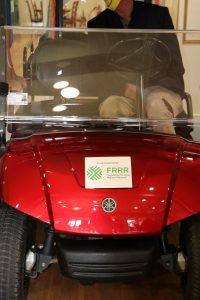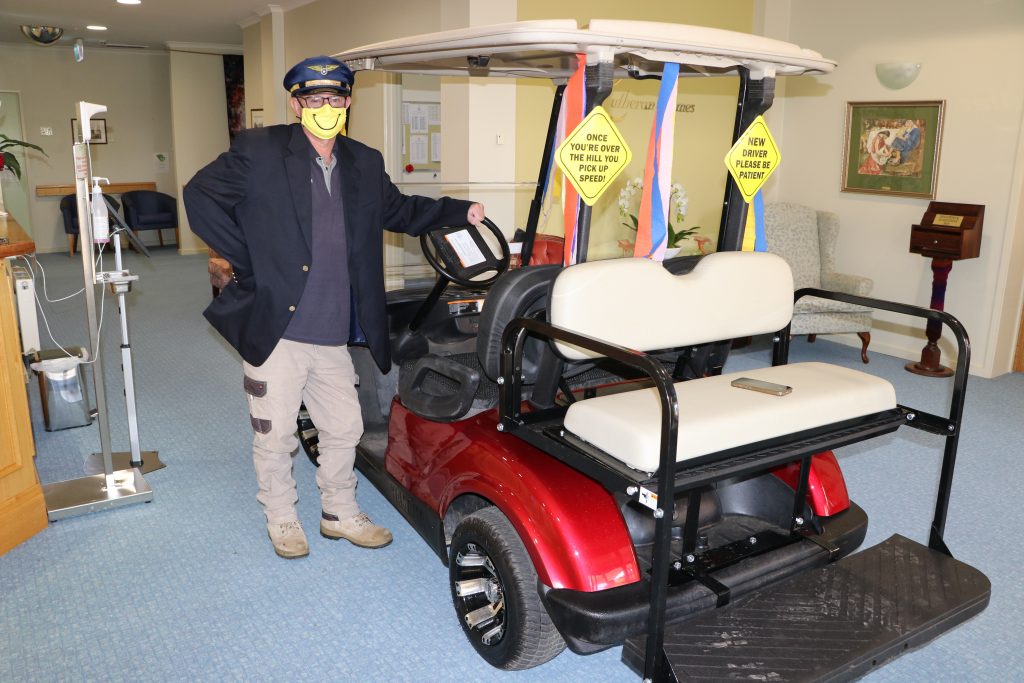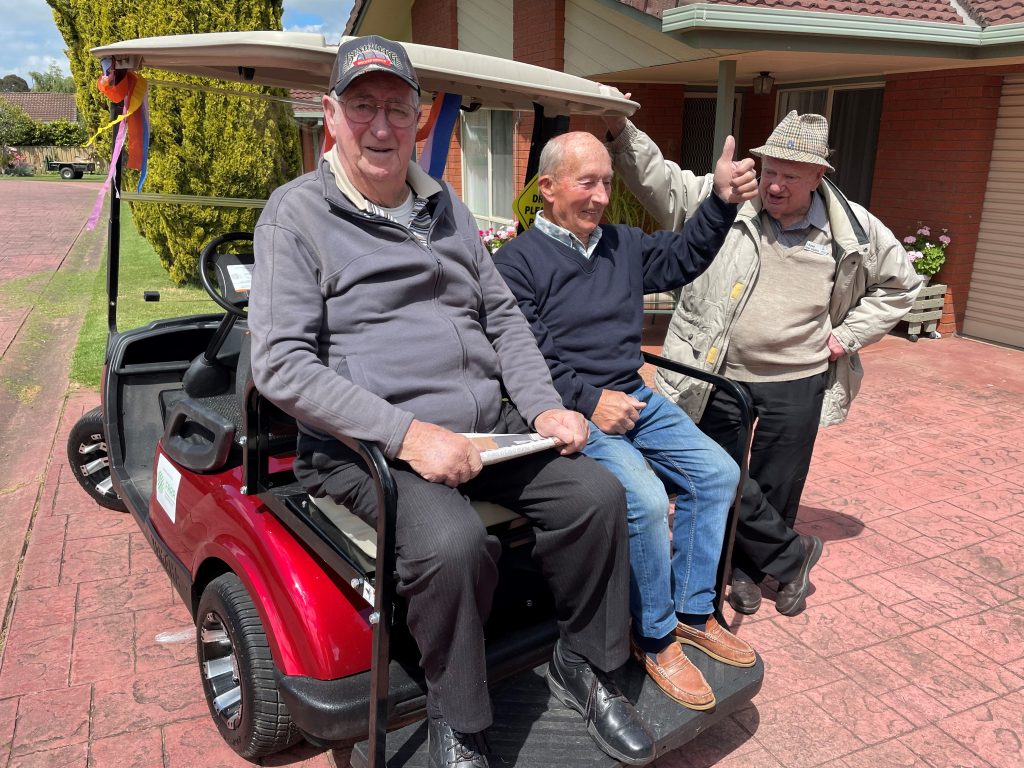Foundation for Rural & Regional Renewal (FRRR)
In many aged care facilities social isolation among elderly residents has been an ongoing battle, especially during COVID, as restrictions and lockdowns prevented family and friends visiting loved ones for almost two years. Luckily for the residents of Eventide Lutheran Homes (ELH) in Hamilton, Victoria, the future is now looking decidedly more social.

Thanks to a $10,000 Strengthening Rural Communities (SRC) grant supported by Ian Rollo Currie Foundation, ELH was able to purchase a golf buggy that has been assisting with the transport of residents with mobility and sight issues around the facility. This has been especially useful for building social connection among residents who previously may not have engaged with organised activities due to the difficulty of getting around.
The golf buggy has three seats available to move the residents around in a comfortable and protected way across the facility, including the gardens, the golf course, and any other location the residents wish to visit.
The purchase of the buggy has been an absolute success for not only the residents, but for the staff and volunteers as well. After 18 months of almost constant lockdowns, the volunteers and social activities staff have been very excited to see more activities in the facility and to see the enjoyment of the residents. Staff members have also been seen taking more ownership over projects and events within the facility.
In one instance, a resident was taken for a drive around a nearby golf course where he had previously played golf with a handicap of four for 50 years. He was visibly moved by the experience of visiting the golf course once again.
The buggy arrived at Eventide on the 8 November 2021 and was christened with a celebration morning tea and rides for residents outside. Unfortunately, the weather was not so kind, and the rides had to be cut short. But since then, the buggy has been moving people around the grounds with no issues.
“Apart from the obvious enjoyment of the residents it was exciting to see different staff members taking ownership and being part of the project. After 18 months of almost constant lockdown, none or very few volunteers and few social activities staff were very excited to have social activities in the facility and see the enjoyment of the residents. This had a positive effect on staff and they are busy planning events for the buggy.
Visitors who have been prevented from freely seeing their loved ones for almost 2 years have been excited and engaged in the project and will be able to take their loved ones for rides outside.”



